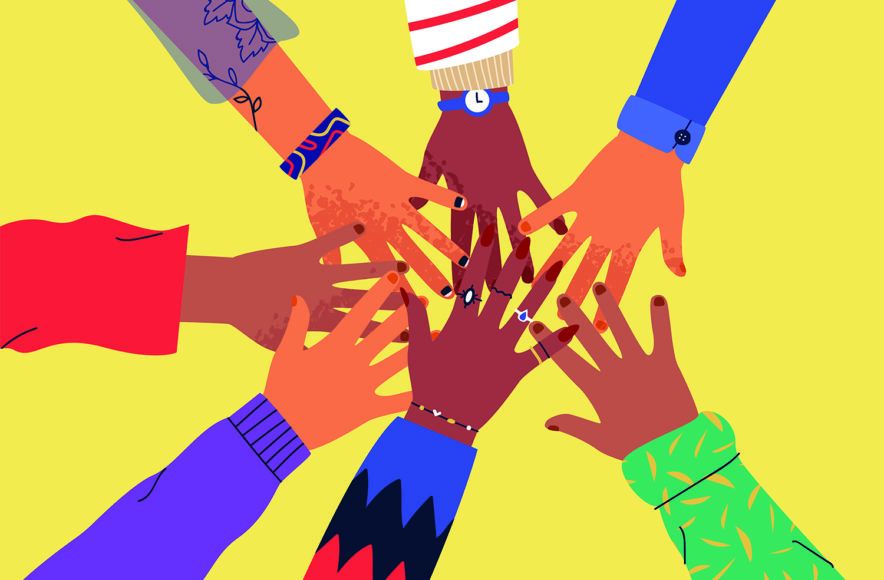All equal now? Some more than others? Impact of Coronavirus pandemic and Black Lives Matter

The past few months have produced many surprises and twists, some positive, some not. The challenge for us all is how do we drive positive change from the raw emotions we now feel. The huge sadness Covid-19 leaves in its wake and the rightful anger arising from the killing of George Floyd. Between them the Covid-19 pandemic and the Black Lives Matter movement pose personal and collective challenges that we should not and must not duck.
There have been other debates raging too. JK Rowling’s comments on transgender people has turned attention again to issues of gender identity. We know from our own work that disabled people face huge barriers to full participation as equal citizens, from poorer health outcomes, discrimination at work and hate crime. The Black Lives Matter movement channels a passion and energy that we should draw on to tackle racism and wider prejudices wherever and however we find them.
Covid-19 impact
There was a brief flurry in the early stages of the pandemic where commentators were suggesting that Covid-19 would be the great leveller, a virus that had no respect for status or position in society. This was fairly quickly shown not to be true. We know now:
- The mortality rates from COVID-19 in the most deprived areas are more than double the least deprived areas;
- Death rates from COVID-19 are highest among people of Black and Asian minority ethnic groups (BAME). People of Bangladeshi ethnicity have around twice the risk of death than people of White British ethnicity.
Between 10 April and 15 May this year, 386 people with a learning disability and or autism, died in community services. For the same period last year the figure was 165 people. This is a 134% increase in the number of death notifications over the period, a death rate around one third higher than that of the population as a whole.
Tackling inequalities and prejudice
Inequalities remain deep rooted in the fabric of our society. This is not a problem for ‘them’ (whoever ‘they’ may be) to sort out. Prejudice is not something ‘they’ experience or are responsible for, it is something we all need to stand up and take responsibility for. That is why in responding to Black Lives Matter, we will take up the challenge to tackle inequalities of all kinds experienced by colleagues and people we support.
As Michelle Obama highlights, it starts with ‘self-examination and listening’. That is why our first step must be to start the conversation with people within and in touch with United Response who have ‘lived experience’ of the prejudice that we need to root out. To understand directly from those experiencing discrimination and barriers, what that feels like and what we need to do to deliver real change.
Without prejudging the outcome of these conversations, our commitment is that by late autumn 2020 we will have:
- Established channels through which we regularly engage colleagues on equality and diversity issues, for example a diversity network/champions.
- People we support will have greater influence on the Governance and direction of United Response, for example through greater involvement in trustee forums.
- A set of agreed priorities and practical actions to tackle equality and diversity across gender, race, disability, sexual orientation/identity and age.